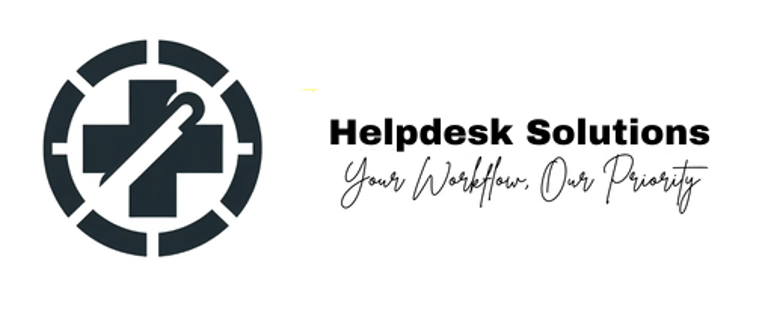The Dangers of Below Market Call Center Rates: What You Need to Know
10/19/20245 min read


Understanding Below Market Rates
Below market call center rates refer to pricing structures that are significantly lower than the industry standard for call center services. These rates are often presented as promotional offers by agencies aiming to attract new clients or expand their customer base. Initially, the low cost may seem appealing, presenting an opportunity for businesses to cut expenses in customer support without compromising on service quality.
Typically, agencies employing below market rates utilize various strategies to allure potential clients. They may advertise their services with impressive claims of high-quality customer care and advanced technology at a fraction of the expected cost. This can create a misleading perception that clients are obtaining exceptional value. However, it is essential to investigate further, as these savings often come at a price. The quality of service can suffer due to underpaid staff, lack of training, or inadequate resources.
The common tactics used to present below market rates include showcasing long-term contracts with enticements such as additional services included at no extra charge. Unfortunately, what may seem like a beneficial arrangement might hide underlying issues such as reduced service availability, higher turnover rates among agents, or subpar customer experiences. These potential pitfalls can lead to detrimental outcomes such as lost clients or damage to company reputation.
The notion of benchmarking prices is crucial when assessing call center services. Understanding the expected market rates empowers businesses to make informed decisions, ensuring they are not swayed by superficial cost savings. Evaluating pricing models against competitors and industry standards helps identify any discrepancies and assess the broader implications of choosing a service provider based on below market rates.
The Loss Leader Strategy Explained
The loss leader strategy is a marketing tactic employed by various businesses, including call centers, to attract clients through significantly reduced pricing. This approach involves offering services at a price that is lower than the operational costs, aiming to draw in new customers who might otherwise consider alternative service providers. By presenting an appealing initial rate, these agencies aim to create a sense of urgency or value perception, compelling potential clients to sign contracts or agreements. This tactic is particularly tempting in the competitive landscape of call center services, where pricing can influence a client's choice significantly.
Once clients are onboarded, the expectation is that they will be satisfied with the service provided and thus unlikely to leave, even when prices are later adjusted upward. Consequently, after a certain period, call centers may raise their rates, capitalizing on the established relationship and the initial investment by the clients. This can lead to a situation whereby clients feel trapped in a long-term contract, forced to absorb increased costs for services that they may have initially found appealing due to their low cost. While this strategy can foster quick client acquisition, it can potentially damage long-term business relationships if clients feel misled.
A practical example of this strategy can be found in some call centers that offer introductory rates for specific services, such as customer support or telemarketing, that are significantly lower than industry standards. Initially, businesses are attracted to these deals, but as their reliance on the service grows, they may become subject to gradual cost increments that ultimately outstrip their budgetary expectations. Therefore, understanding the implications of the loss leader strategy is critical for businesses looking to engage with call center services, ensuring that they assess the long-term value beyond the initial appeal of low rates.
Hidden Costs and Quality Concerns
When organizations consider outsourcing their customer service functions to call centers, they often find themselves attracted to below-market rates. While the initial cost savings may appear appealing, it is critical to understand the hidden costs and quality concerns that accompany such decisions. Engaging a call center that offers services at drastically reduced prices can lead to a series of compromises that ultimately impact customer satisfaction.
One prevalent issue faced by companies opting for budget-friendly call centers is inadequate staffing. Call centers that operate with thinner margins tend to minimize the number of agents on duty to keep costs low. This reduction often results in prolonged wait times for customers, increasing frustration and ultimately leading to a negative perception of the brand. According to industry studies, customer frustration can increase by up to 80% when wait times extend beyond five minutes, underscoring the importance of adequate staffing in maintaining service quality.
Furthermore, insufficient training is another critical concern linked to lower call center rates. Call centers that prioritize cost-savings may cut back on the resources allocated to training their agents. A well-trained agent is essential for not only resolving customer queries effectively but also for creating a positive customer experience. Research indicates that untrained agents are 30% more likely to provide incorrect information, which can exacerbate customer dissatisfaction and harm the organization’s reputation.
These scenarios illustrate the potential trade-offs that businesses face when selecting a call center based solely on price. The promise of reduced expenses can quickly turn into unforeseen costs due to diminished service quality and customer retention challenges. As businesses weigh their outsourcing options, it is vital to consider the long-term implications of engaging a call center that operates below market rates. The focus should not solely be on cutting costs but balancing expense with the quality of service delivered.
Making Informed Decisions: What to Look For
When selecting a call center partner, it is imperative to consider factors beyond mere pricing. While competitive rates may initially appear attractive, it is crucial to evaluate the potential long-term impacts of choosing a provider based solely on low costs. Start by assessing the call center's reputation in the industry. Look for awards, recognitions or affiliations that speak to their credibility. A well-regarded partner is more likely to provide reliable service and foster positive customer interactions.
Next, delve into client testimonials and case studies. Honest feedback from current or previous clients can provide valuable insights into the call center's performance and reliability. Consider requesting references and inquire specifically about their experiences concerning service quality and responsiveness. Engaging with past clients can reveal how the center has handled challenges, which is a useful indicator of operational proficiency.
Another essential criterion is the variety of service offerings available. A diversified call center with a broad range of support solutions can better adapt to your evolving business needs. Evaluate whether the center provides multi-channel support, including phone, email, and chat services, and verify their expertise in your industry. Additionally, consider how well the provider embraces technology. A call center that utilizes advanced tools and analytics can significantly enhance customer engagement and operational efficiency.
Scalability is another vital aspect to assess. As your business grows, your customer support needs may change, and your call center partner should be equipped to scale their services accordingly. Discuss their resources and capabilities to ensure they can handle increased call volumes without compromising quality. Making informed decisions by thoroughly evaluating these criteria will ultimately help you avoid the pitfalls of below-market call center rates, ensuring that your business remains competitive and your customers receive excellent support.
Address
3870 Ponte Ave Suite 110 Addison, Tx, 75001
Contact us
(214) 556-1323
Support@helpdesksolutions.org
